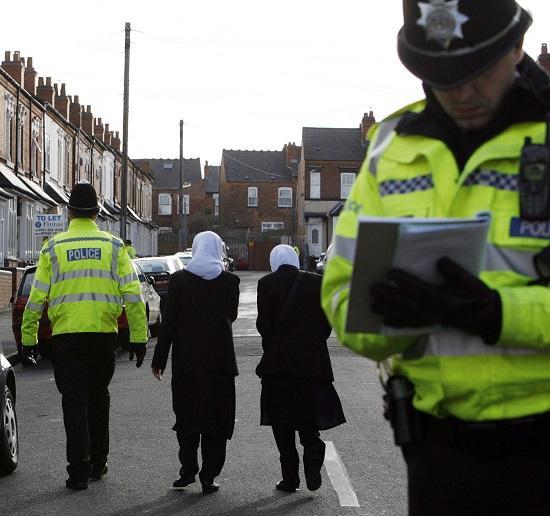British Government Provokes Anti-Muslim Sentiment

The “Prevent Violent Extremism” initiative has eroded human rights especially for the Muslim community who have been “subjected to intrusive monitoring” for any form of criticism of UK foreign policy, the Islamic Human Rights Commission (IHRC) said in a statement cited by Tele Sur TV on Monday, June 15.
The IHRC along with the Campaign Against Criminalizing Communities and the Haldane Society of Socialist Lawyers organized on Saturday, June 13, a conference to tackle government’s prevent program.
The government’s new anti-extremist strategy which will ban Britons from traveling to conflict zones, targets Shari`ah courts, and makes it harder to obtain citizenship, calling it a “toxic brand.”
With an annual budget of £40m, the Prevent program is one of four strands of Contest, the acronym given to the government's multi-pronged counter-terrorism strategy.
“Muslims in Britain have been subjected to intrusive monitoring for evidence of 'extremist ideas', these have always been loosely defined but have increasingly come to be set in opposition to an assumed core of 'British values',” the statement added.
Britain's 2.7 million Muslims have taken full brunt of anti-terror laws since the 7/7 attacks in 2005.
They have repeatedly complained of maltreatment by police for no apparent reason other than being Muslim.
For many critics, the Prevent strategy has stigmatized the Muslim community by trying to present Islamic faith as opposite to “British values.”
“Police remain at the service of a determined sector, which is the rich and the white,” said one of the conference's speakers, the retired police officer Leroy Logan.
The former officers stated that implementation of the anti-radicalization program has “disrupted” the police from being able to work with all sectors of the community.
On his part, British writer Arun Kundani urged all the communities and institutions of civil society to oppose the “Prevent Violent Extremism” program, which was created after the London attacks of July 7, 2005.
Arun Kundnani, currently of New York University, who has written extensively on government anti-terrorism strategy and Marie-Breen Smith of the University of Surrey were also among the keynote speakers of the conference.
Last month, Conservatives announced plans to revive the much-criticized Snoopers’ Charter bill, with its huge surveillance powers, despite rights activists' warnings.
Under the controversial legislation, phone and internet companies will be required to maintain records of customer’s internet, email and mobile phone activity for 12 months, without intruding calls or messages.
In November 2014, Cameron disclosed that British fighters travelling abroad to take part in the conflict in Syria and Iraq could be prevented from returning to the UK under a new Counter Terrorism Bill.
Under new “exclusion orders” announced by Cameron, suspected fighters would be barred from returning to Britain unless they agreed to be placed under strict controls.
Rights groups criticized the new proposals as being unjust and warned they were pushing Britain into becoming a “police state”.



